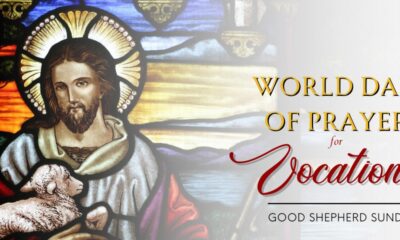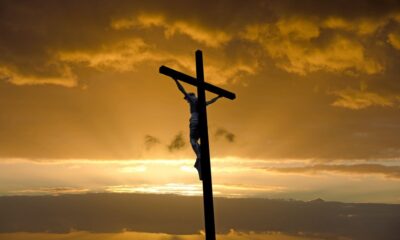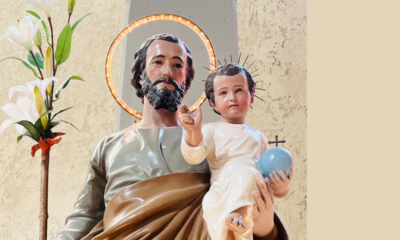Catholic Teachings
Feast of the Exaltation of the Cross
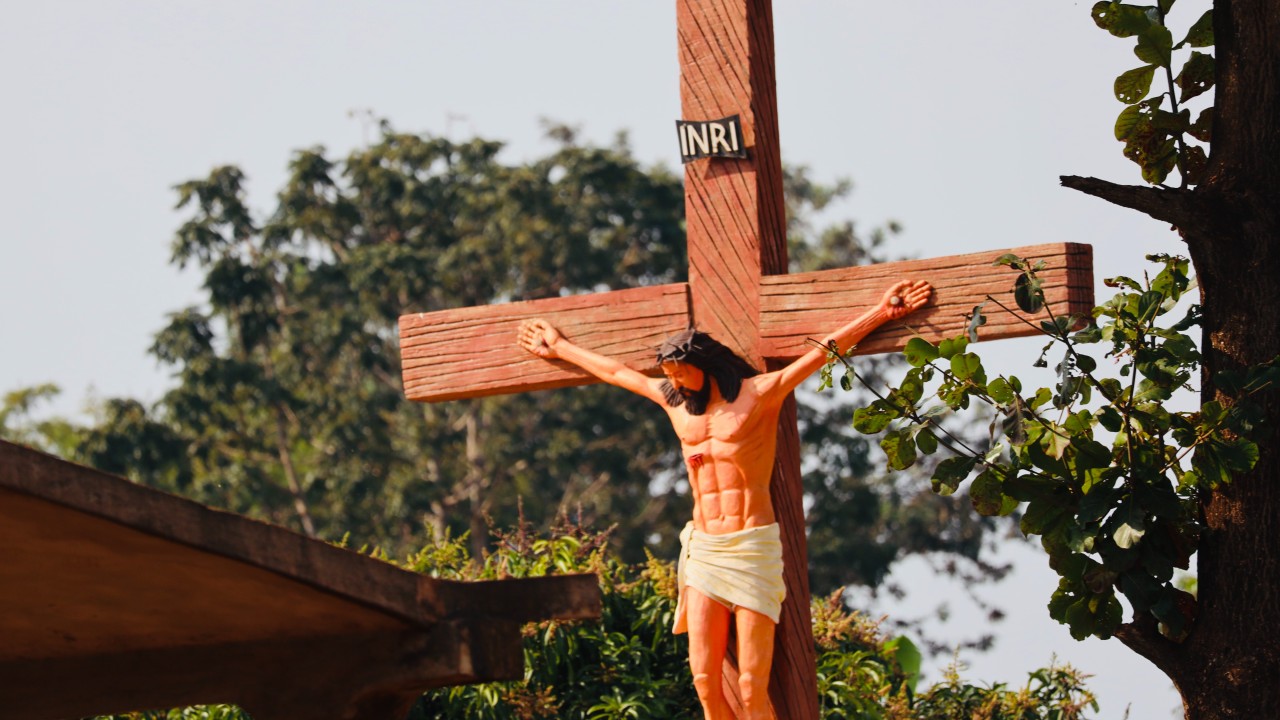
Have you ever wondered why Catholics celebrate the feast of the Exaltation of the Cross on September 14th? Let us first reflect on the historical facts where in the 14th century, Saint Helena found the Holy Cross in Jerusalem.
In the year 614, the Persians took it as a war trophy. Emperor Heraclius recovered it and brought it back to Jerusalem on September 14, 628.
The wood was divided into parts, sending fragments to Rome, Constantinople, and Jerusalem.
Splinters were distributed to churches all over the world, known as the “relics of the true Cross”.
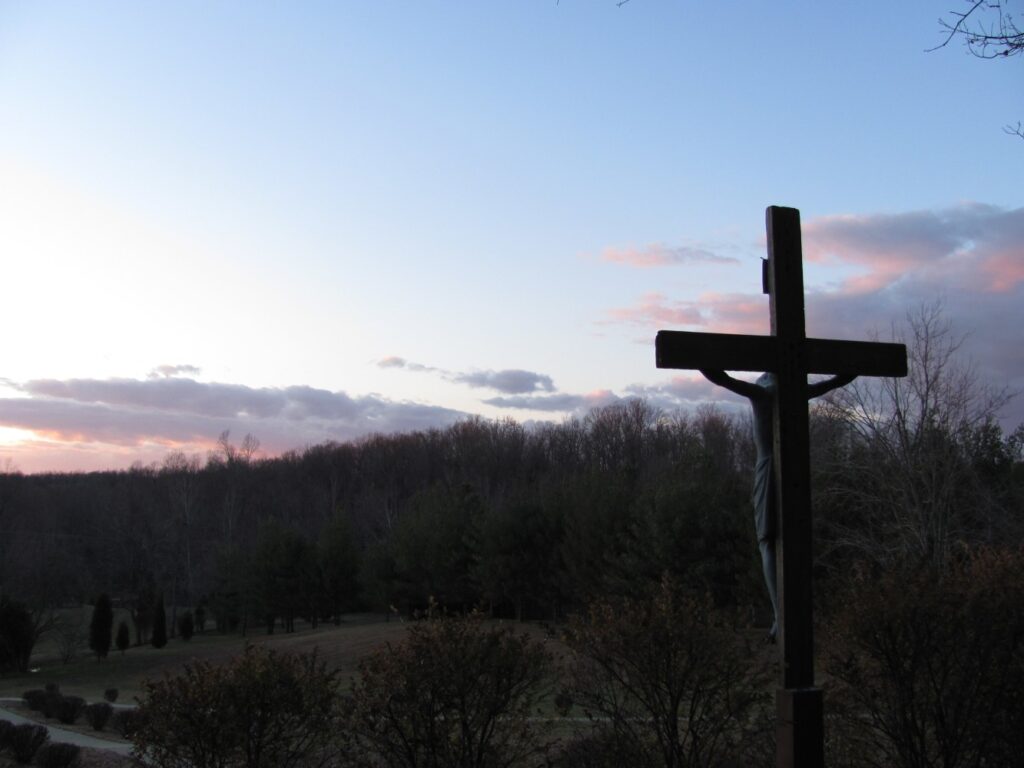
Photo Credit: Passionist Nuns
The tradition of this day holds great significance in the Catholic Church, symbolizing the triumph of the Cross as a symbol of love, sacrifice, and redemption. Throughout history, the Cross has been a powerful symbol, reminding us of Christ’s ultimate sacrifice and the promise of salvation attained by the Cross the ONLY symbol of Hope among the Holy Cross Congregation International religious in our Spirituality “Ave Crux Spes Unica!” Hail the Cross our Only Hope. Handed to us by our founder Blessed Basil Moreau.
The feast of the Exaltation of the Cross is a time for all of us to reflect on the central tenet of our faith: the crucifixion and resurrection of Jesus Christ. It celebrates the victory of good over evil, light over darkness, and life over death. The Cross serves as a reminder of the love that God has for humanity, willing to sacrifice His only Son for the forgiveness of sins.
We know for centuries, the Cross has been a symbol of hope and strength for believers around the world. It represents the ultimate act of love and selflessness, inspiring countless individuals to live a life of compassion, forgiveness, and service to others. The feast of the Exaltation of the Cross reminds us of this profound message, calling on Catholics and people of goodwill to emulate the example set by Christ.
In a world filled with challenges, conflicts, and uncertainties, the feast of the Exaltation of the Cross is more relevant than ever. It serves as a beacon of hope in times of darkness, a source of strength in moments of weakness, and a reminder of the power of faith and redemption. As we come together to celebrate this important feast, we are reminded of the enduring message of the Cross: love conquers all.
The feast of the Exaltation of the Cross holds a special place in the hearts of many Christians around the world. It is a time to reflect on the profound significance of the Cross as a symbol of love, sacrifice, and redemption. As we commemorate this important feast, let us remember the enduring message of the Cross may each one of us strive to live their lives in accordance with its teachings. May we embrace the love, hope, and forgiveness that the Cross represents, and let it guide us in our journey toward a life filled with hope, joy, and peace.
The song “When I Survey the Wondrous Cross” holds deep meaning and significance of the Cross for me. It reflects on the sacrifice of Jesus Christ on the cross and the profound impact it has on believers. The lyrics of course invite us to contemplate the amazing love and grace displayed through Christ’s crucifixion on the Cross, emphasizing the power of the Cross as a symbol of redemption, salvation and hope.
It also invites us to reflect on our own lives in light of Christ’s sacrifice, prompting us to consider the depth of God’s love and the magnitude of His forgiveness. It serves as a reminder of the central tenets of Christianity – love, sacrifice, and faith – and invites us to respond with gratitude, humility, and devotion.
Through its poignant lyrics and moving melody, “When I Survey the Wondrous Cross” is one song that draws us to meditate on the transformative power of Christ’s death and resurrection. It encourages a deep sense of introspection, repentance, and renewal, leading us to a deeper appreciation of God’s mercy and grace.
“When I Survey the Wondrous Cross” for me serves as a powerful expression of faith, gratitude, and reverence toward the sacrificial love of Jesus Christ. It continues to resonate with us across generations, inspiring those who value its message to embrace the Cross and live a life guided by love, hope, and faith.
Biblical Reflections
The Journey of Holy Week is a Journey of Introspection
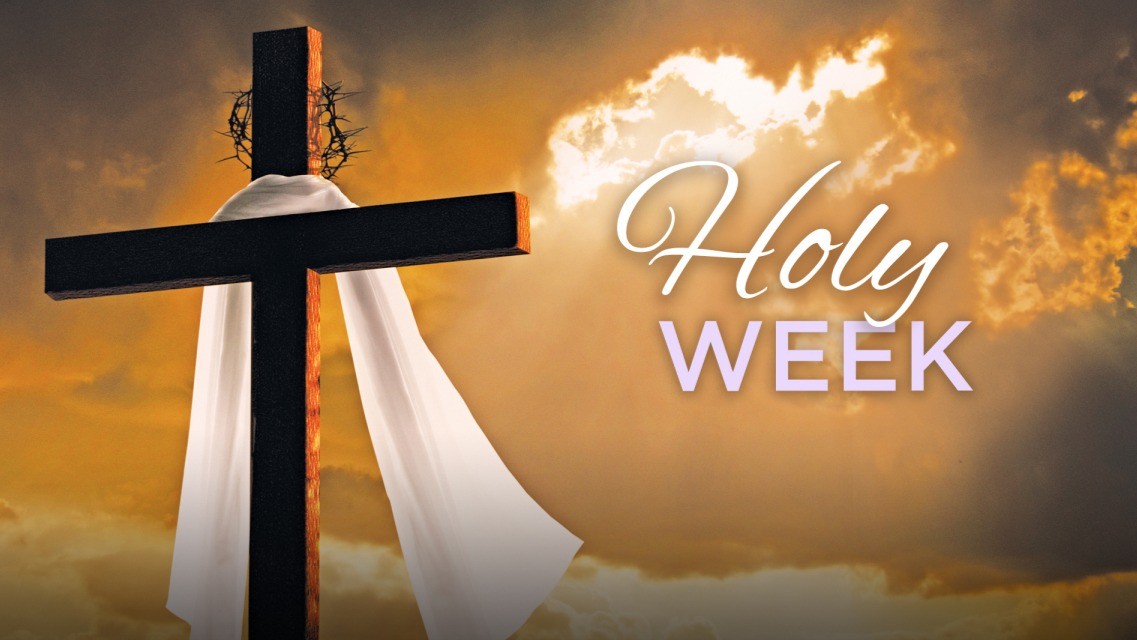
Holy Week, the final and most sacred week of Lent, is a profound and transformative journey in our lives. It invites us to walk with Christ through His Passion, Death, and, ultimately, Resurrection. Beginning on Palm Sunday and culminating with the Easter Vigil on Holy Saturday night, this sacred week, especially during this jubilee year, calls us to deep introspection, repentance, and spiritual renewal.
As you may know, Holy Week opens with Palm Sunday, when we commemorate Jesus’ triumphant entry into Jerusalem. As He approached the city, crowds gathered to greet Him, waving palm branches and shouting, “Hosanna! Blessed is he who comes in the name of the Lord!” (Mark 11:9). Palms were blessed and distributed during the liturgy, symbolizing both victory and kingship.
However, Palm Sunday is more than a mere celebration. The same liturgy also includes the Passion narrative, shifting our focus to Christ’s impending suffering. It is a powerful reminder that the road to glory passes through the cross. As we wave our palms and sing hosannas, we’re also invited to ponder the cost of redemption and prepare our hearts for what lies ahead.
One may reflect on: Matthew 21:1–11, Mark 11:1–11, Luke 19:28–40 and John 12:12–19.
Holy Monday to Holy Wednesday are Days of Preparation and Tension
The days between Palm Sunday and the Triduum, Holy Monday, Holy Tuesday, and Holy Wednesday, are often quieter regarding liturgical celebrations, but they are rich in spiritual meaning. These are days of silent preparation, where we grow increasingly aware of the tension in the Gospel narrative and are called to reflect on the inner work of the heart.
Holy Monday: Cleansing of the Temple
On Holy Monday, we recall Jesus cleansing the temple, driving out the money changers and restoring the sacred space (Matthew 21:12–17). This bold action speaks to the purification of our hearts. Just as Jesus cleansed the physical temple, He desires to cleanse our lives of distractions and impurity, enabling us to worship in truth and spirit.
Scripture to reflect on: Matthew 21:12–17, John 12:1–11 (the anointing at Bethany)
Holy Tuesday: Confrontation in the Temple
On Holy Tuesday, Jesus speaks powerfully in the temple, engaging in debates with religious leaders and warning against hypocrisy (Matthew 21:23–27, 22:15–46). His words challenge us to examine our lives our attitudes, behaviors, and relationship with God. Are we living according to His truth, or do we, like the Pharisees, stand in judgment of others while neglecting our own hearts? Scripture to reflect on: Matthew 21:23–27, 22:15–46 and John 12:20–36
Holy Wednesday: Spy Wednesday
Holy Wednesday is traditionally known as Spy Wednesday. It marks the day when Judas Iscariot betrayed Jesus, agreeing to hand Him over for thirty pieces of silver (Matthew 26:14–16). This act of betrayal is a sobering reminder of the potential for betrayal within every human heart. It calls us to humility, vigilance, and self-reflection in our walk with Christ. Are we following Him faithfully, or have we allowed the lure of worldly gain to lead us astray? Scripture to reflect on: Matthew 26:14–16 Luke 22:1–6
A Time to Look Within
As we move through these first days of Holy Week, we are called to slow down and look inward. This journey is not just a historical re-telling of events—it is deeply personal. We must ask ourselves: Are we ready to let Christ cleanse the temple of our hearts? Are we prepared to sit in the tension of His Passion story and allow it to shape our lives?
This sacred time is not merely about remembering what Jesus did—it’s about joining Him on the road to the Cross. Through prayer, Scripture, silence, and the sacraments, we are invited to be transformed.
Having known what makes each day special, let this week not pass us by as a mere routine observance. Let it be a true journey of introspection, a pilgrimage of the heart. When we arrive at Easter morning, may we rise with Christ in the fullness of joy and new life.
Reflection Question:
How are we going to prepare our hearts this Holy Week? What steps can we take to make this journey more meaningful, so that we can experience the transforming power of Christ’s Resurrection?
Catholic Teachings
The Devotion to Divine Mercy in the forms handed on by Jesus to St. Faustina
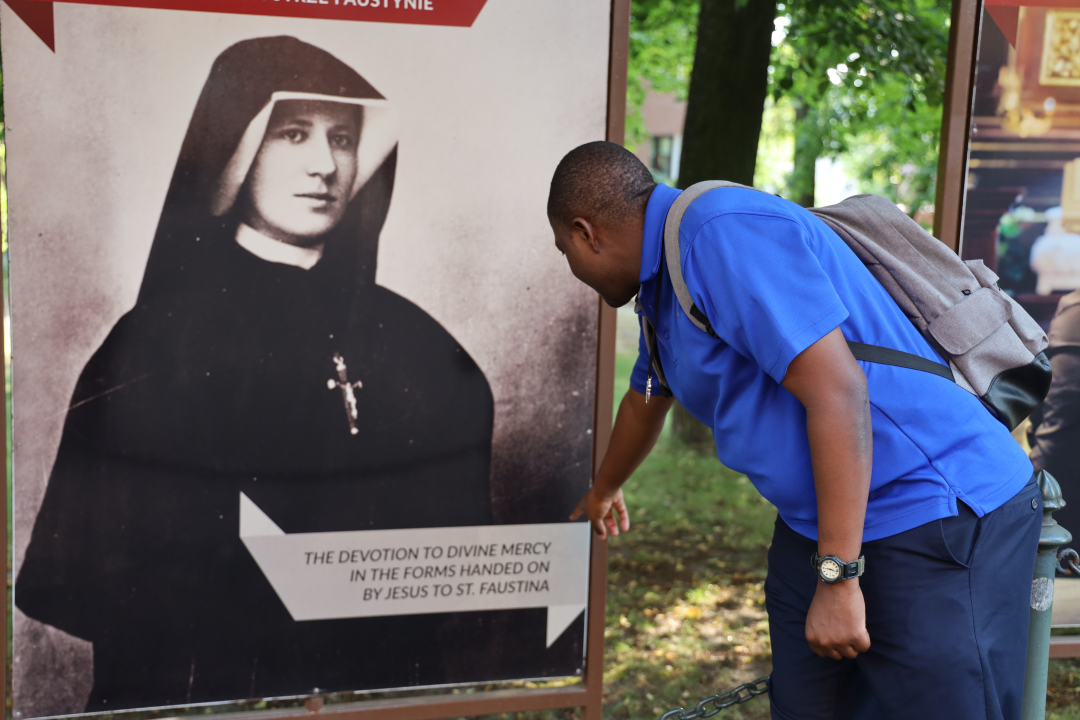
I took a few days away to reflect and connect with God in a more personal and profound way and during this time I would move to specific places for a day of prayer one of these places was the Divine Mercy Sanctuary in Kraków Poland the home of Pope John Paul II. Visiting the tomb of St. Faustina and the Divine Mercy Sanctuary was a profound and enlightening experience that deepened my faith in ways I never imagined. As I walked through the sacred grounds, I could feel a sense of peace and compassion enveloping me, reminding me of the boundless love and mercy that God has for me and every one of us.
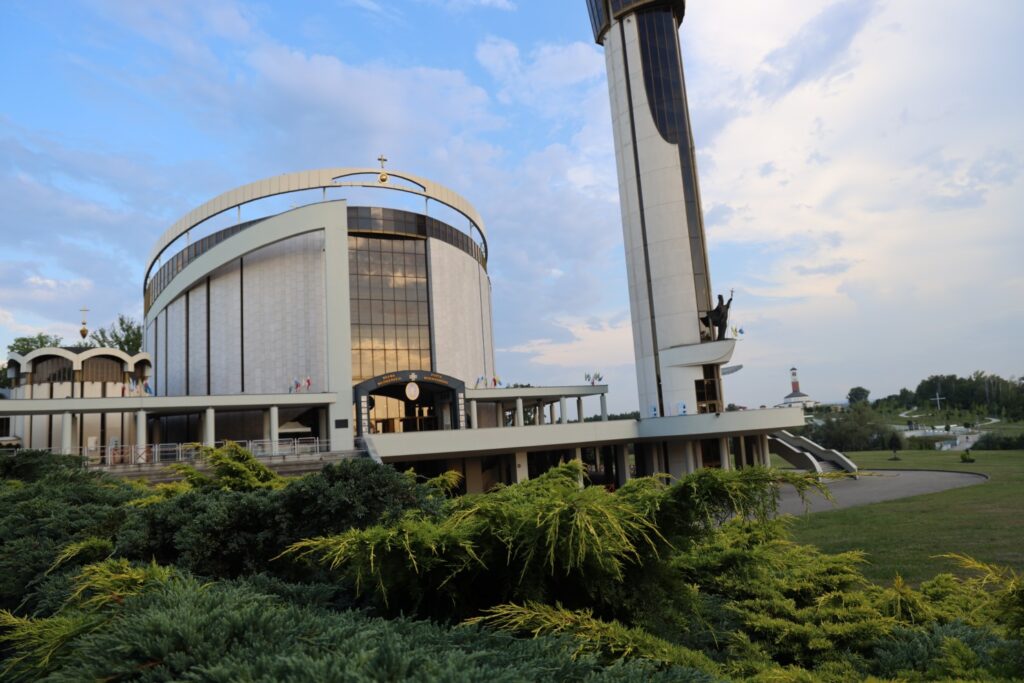
The divine Mercy Sanctuary
I find St. Faustina’s message of Divine Mercy very relevant in today’s divided society and world just like John Paul II desired to see a Just and Peaceful World. Now in a time where there is so much conflict and wars, natural calamities, political divides, and immigrant-related challenges, the message of Divine Mercy serves as a beacon of hope, and reconciliation, and an invitation for us to accommodate other people by going out of our way to help those in need. It reminded me that no matter our sins or shortcomings, we are all deserving of God’s infinite love, mercy, and forgiveness.

Doves are symbols of peace
The sanctuary itself is a place of solace and reflection, where people from all walks of life come to seek solace and renewal in full-time Adoration and other spiritual programs. I was lucky to touch and pray for her first-class relic that didn’t leave me the same. I had a novena prayer I was taking with a friend and when I mentioned it in silence there was an inward moment that gave me joy. It was a reminder for me that despite our differences, and difficulties in life we are all united in our shared humanity and our need for grace and redemption is desirable.
Especially in our present world which often seems to be filled with individualistic and materialistic cravings, Sweyed by Technology and social media that somehow if not well used can separate us from the love of God and our neighbor. We tend to know more about what is happening to our neighbors through social media than knowing how they actually are. Children feel separated from the parents whom they live within families because the interactions are more done on social media rather than in person, we have so many judgments and condemnations, thank compassion, and listening so with all these the message of Divine Mercy offers a different perspective. It challenges us to look beyond our own prejudices and biases, and to embrace a more compassionate and forgiving way of living with ours again seeking a just and peaceful world.
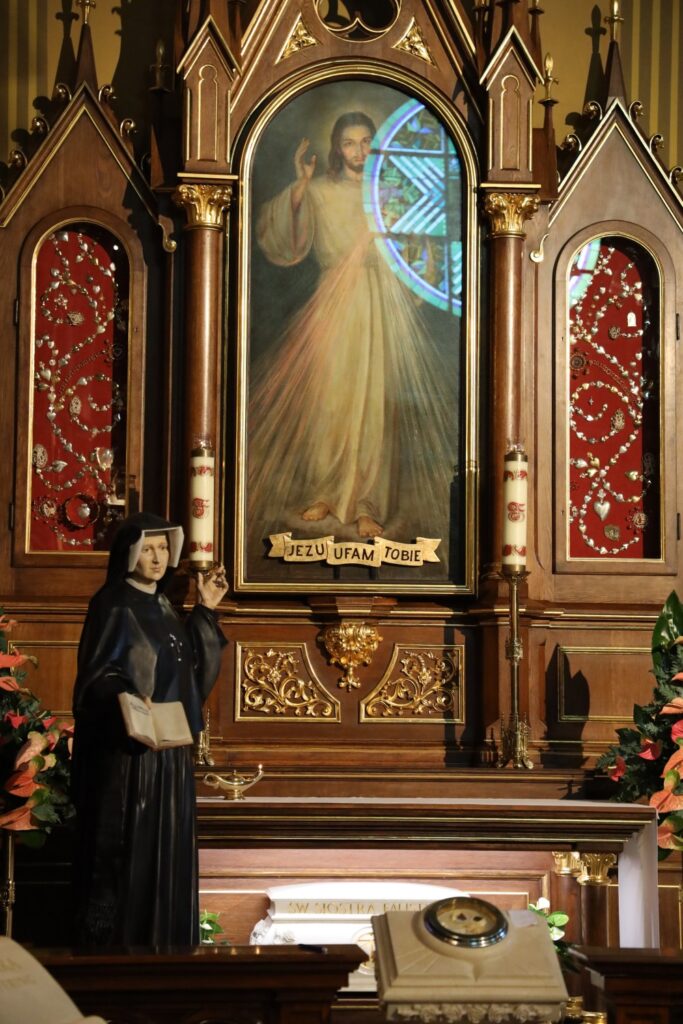
At the tomb of St. Faustina
That patience of saying I am sorry, that patience of listening more than speaking more or even listening to oneself as I speak is an act of compassion and a way to be just to others. Parents, Teachers, and families let us be just to each other, the children entrusted to our care and listen to them as opposed to judging them for the first spot but being able to understand them and guide them I always thought if the parents of Blessed Carlo Acutis were not patient they would have never known the hero in him.
After, my visit to the tomb of St. Faustina and the Divine Mercy Sanctuary reaffirmed my belief in the power of mercy and grace as a challenge I have to carry with love because it reminded me that my media work involves talking and listening to so many people sometimes I lose the patience and that no matter how divided the world may seem, there is always hope for healing and reconciliation through the boundless love of God. It is upon me and your dear reader to take a part in being a peace builder be it at your workplace or family or even with strangers.
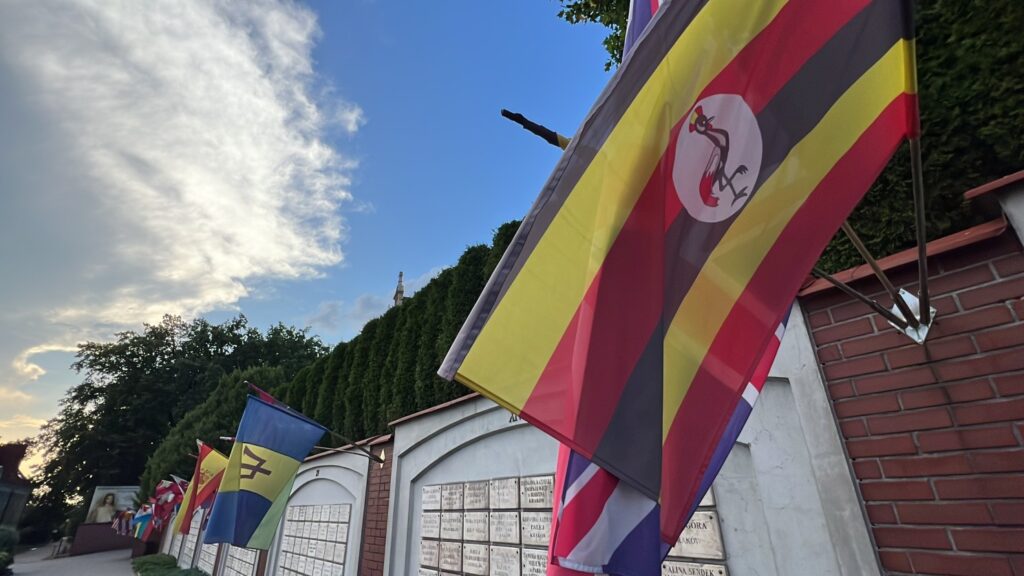
This place itself is welcoming to all stranger on first site I recognized my Country Flag
The Emmaus story which I love so much raises an interesting question: of who the stranger is? The question is, can we welcome the strange one? How can we be as receptive to Christ in them just like those two despairing disciples were open and receptive to Jesus on the road to Emmaus? To receive what “the other” has to give, we will need to practice what I call “inner hospitality” that is, a spirit of openness and receptivity to those unlikely moments when the friendliness of a stranger or the strangeness of a friend causes our hearts to burn within us.
In Matthew 25:42-46 Jesus points out that when we welcome all types of strangers, we are welcoming Christ himself—which is exactly what happened to the two
-
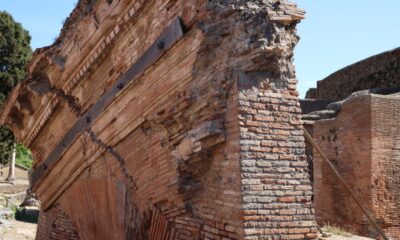
 History & Spirituality2 years ago
History & Spirituality2 years agoStepping into the ancient ruins of Ostia Antica
-
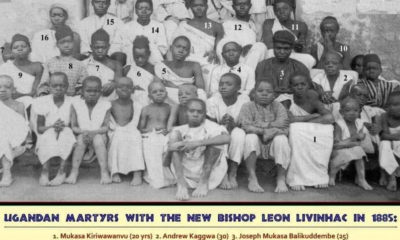
 Uganda Martyrs1 year ago
Uganda Martyrs1 year agoCelebrating 60 Years of Canonization: The Ugandan Martyrs – Seeds of Faith Sown on the soils of the Glorious Uganda, Africa, and the rest of the world
-
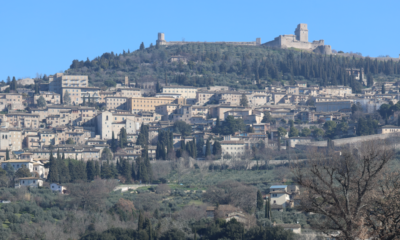
 Environmental Conservation2 years ago
Environmental Conservation2 years agoMy experience of visiting Assisi and understanding its connection to Laudato Si
-
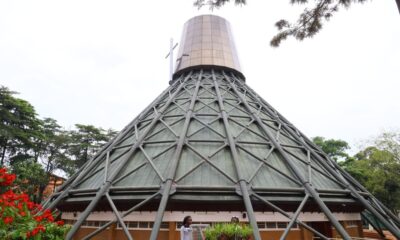
 Church History2 years ago
Church History2 years agoThe Uganda Martyrs: A Testament of Faith and Sacrifice
-
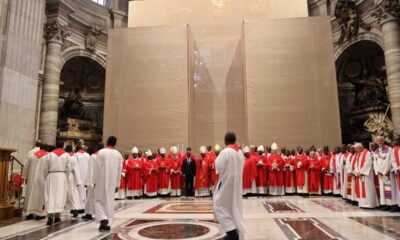
 Uganda Martyrs1 year ago
Uganda Martyrs1 year agoCelebrating the 60th Anniversary of the Canonization of the Uganda Martyrs in Rome
-
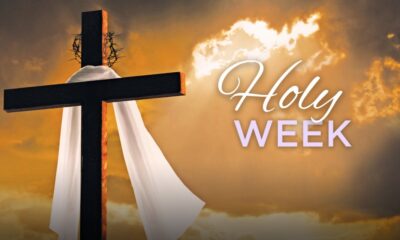
 Biblical Reflections11 months ago
Biblical Reflections11 months agoThe Journey of Holy Week is a Journey of Introspection
-
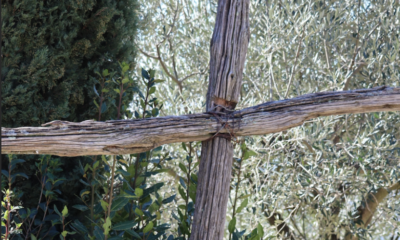
 Faith & Reflection2 years ago
Faith & Reflection2 years agoFinding Meaning and Purpose in Life
-
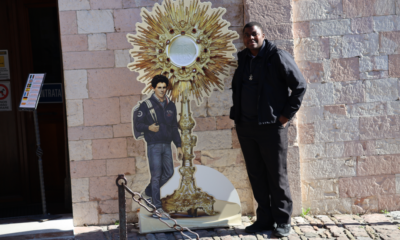
 Catholic Saints2 years ago
Catholic Saints2 years agoPutting God First: Carlo Acutis a Model for Young People who are not sure of how to Use their Talents.



